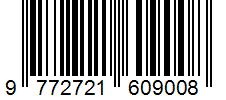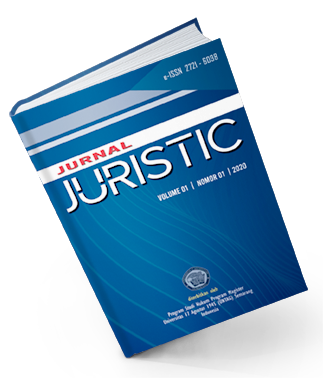Analisis Yuridis terhadap Fenomena Deepfake dalam Konteks Hak Privasi di Era Digital Global
Sari
Kata Kunci
Teks Lengkap:
PDFReferensi
Aseeva, Anna, ‘Liable and Sustainable by Design: A Toolbox for a Regulatory Compliant and Sustainable Tech’, Sustainability, 16.1 (2023), p. 228, doi:10.3390/su16010228
Asimakopoulos, George, Hera Antonopoulou, Konstantinos Giotopoulos, and Constantinos Halkiopoulos, ‘Impact of Information and Communication Technologies on Democratic Processes and Citizen Participation’, Societies, 15.2 (2025), p. 40, doi:10.3390/soc15020040
Axelsson, Kaya, Claire Wigg, and Matilda Becker, ‘Is Impact Out of Scope? A Call for Innovation in Climate Standards to Inspire Action Across Companies’ Spheres of Influence’, Carbon Management, 15.1 (2024), p. 2382995, doi:10.1080/17583004.2024.2382995
Bakiner, Onur, ‘The Promises and Challenges of Addressing Artificial Intelligence with Human Rights’, Big Data and Society, 10.2 (2023), pp. 1–13, doi:10.1177/20539517231205476
Clare, McGlynn, and Rüya Tuna Toparlak, ‘The “New Voyeurismâ€: Criminalizing the Creation of “Deepfake Pornâ€â€™, Journal of Law and Society, 52.2 (2025), pp. 204–28, doi:10.1111/jols.12527
Dhirani, Lubna Luxmi, Noorain Mukhtiar, Bhawani Shankar Chowdhry, and Thomas Newe, ‘Ethical Dilemmas and Privacy Issues in Emerging Technologies: A Review’, Sensors, 23.3 (2023), p. 1151, doi:10.3390/s23031151
Falcone, Pasquale Marcello, ‘Sustainable Energy Policies in Developing Countries: A Review of Challenges and Opportunities’, Energies, 16.18 (2023), p. 6682, doi:10.3390/en16186682
Ferrari, Ms Valeria, ‘The Platformisation of Digital Payments: The Fabrication of Consumer Interest in the EU FinTech Agenda’, Computer Law & Security Review, 45 (2022), p. 105687, doi:.1016/j.clsr.2022.105687
Ghiurău, David, and Daniela Elena Popescu, ‘Distinguishing Reality from AI: Approaches for Detecting Synthetic Content’, Computers, 14.1 (2024), p. 1, doi:10.3390/computers14010001
Hossain, Sk Tahsin, Tan Yigitcanlar, Kien Nguyen, and Yue Xu, ‘Local Government Cybersecurity Landscape: A Systematic Review and Conceptual Framework’, Applied Sciences, 14.13 (2024), p. 5501, doi:10.3390/app14135501
Islam, Masabah Bint E., Muhammad Haseeb, Hina Batool, Nasir Ahtasham, and Zia Muhammad, ‘AI Threats to Politics, Elections, and Democracy: A Blockchain-Based Deepfake Authenticity Verification Framework’, Blockchains, 2.4 (2024), pp. 458–81, doi:10.3390/blockchains2040020
Jørgensen, Bo Nørregaard, and Zheng Grace Ma, ‘Regulating AI in the Energy Sector: A Scoping Review of EU Laws, Challenges, and Global Perspectives’, Energies, 18.9 (2025), p. 2359, doi:10.3390/en18092359
Kira, Beatriz, ‘When Non-Consensual Intimate Deepfakes Go Viral: The Insufficiency of the UK Online Safety Act’, Computer Law & Security Review, 54 (2024), p. 106024, doi:10.1016/j.clsr.2024.106024
Kirchschlaeger, Peter G., ‘An International Data-Based Systems Agency IDA: Striving for a Peaceful, Sustainable, and Human Rights-Based Future’, Philosophies, 9.3 (2024), pp. 1–22, doi:10.3390/philosophies9030073
Labs, Deeptrace, The State of Deepfakes: Landscape, Threats, and Impact, 2019
Mania, Karolina, ‘Legal Protection of Revenge and Deepfake Porn Victims in the European Union: Findings From a Comparative Legal Study’, Trauma, Violence, and Abuse, 25.1 (2024), pp. 117–29, doi:10.1177/15248380221143772
Matli, Walter, ‘Extending the Theory of Information Poverty to Deepfake Technology’, International Journal of Information Management Data Insights, 4.2 (2024), p. 100286, doi:10.1016/j.jjimei.2024.100286
Morley, Bruce, and Ionel Bostan, ‘Consolidating the Role of AI in the Economy and Society: Combating the Deepfake Phenomenon Through Strategic and Normative Approaches—The Case of Romania in the EU Context’, Economies, 13.5 (2025), p. 129, doi:10.3390/economies13050129
Mustak, Mekhail, Joni Salminen, Matti Mäntymäki, Arafat Rahman, and Yogesh K. Dwivedi, ‘Deepfakes: Deceptions, Mitigations, and Opportunities’, Journal of Business Research, 154 (2023), p. 113368, doi:10.1016/j.jbusres.2022.113368
Naffi, Nadia, Mélodie Charest, Sarah Danis, Laurie Pique, Ann Louise Davidson, Nicolas Brault, and others, ‘Empowering Youth to Combat Malicious Deepfakes and Disinformation: An Experiential and Reflective Learning Experience Informed by Personal Construct Theory’, Journal of Constructivist Psychology, 38.1 (2023), pp. 119–40, doi:10.1080/10720537.2023.2294314
Observatory, Stanford Internet, SIO 2022 Annual Report, 2022
Parti, Katalin, and Judit Szabó, ‘The Legal Challenges of Realistic and AI-Driven Child Sexual Abuse Material: Regulatory and Enforcement Perspectives in Europe’, Laws, 13.6 (2024), p. 67, doi:10.3390/laws13060067
Pawelec, Maria, and Maria Mariapawelec, ‘Deepfakes and Democracy (Theory): How Synthetic Audio-Visual Media for Disinformation and Hate Speech Threaten Core Democratic Functions’, Digital Society, 1.2 (2022), pp. 1–37, doi:10.1007/s44206-022-00010-6
Pedersen, Kristoffer Torngaard, Lauritz Pepke, Tobias Staermose, Maria Papaioannou, Gaurav Choudhary, and Nicola Dragoni, ‘Deepfake-Driven Social Engineering: Threats, Detection Techniques, and Defensive Strategies in Corporate Environments’, Journal of Cybersecurity and Privacy, 5.2 (2025), p. 18, doi:10.3390/jcp5020018
Raghav, Manjula, and Sanjana Sharma Marwaha, ‘Challenges and Issues in India’s Legal Framework for the Right to Privacy in Cyberspace’, Fiat Justisia: Jurnal Ilmu Hukum, 17.1 (2023), pp. 1–16, doi:10.25041/fiatjustisia.v17no1.2667
Romero Moreno, Felipe, ‘Generative AI and Deepfakes: A Human Rights Approach to Tackling Harmful Content’, International Review of Law, Computers and Technology, 38.3 (2024), pp. 297–326, doi:10.1080/13600869.2024.2324540
Van der Sloot, Bart, and Yvette Wagensveld, ‘Deepfakes: Regulatory Challenges for the Synthetic Society’, Computer Law & Security Review, 46 (2022), p. 105716, doi:10.1016/j.clsr.2022.105716
Sunvy, Ahmed Shafkat, Raiyan Bin Reza, and Abdullah Al Imran, ‘Media Coverage of DeepFake Disinformation: An Analysis of Three South-Asian Countries’, Informasi, 53.2 (2023), pp. 295–308, doi:10.21831/informasi.v53i2.66479
DOI: http://dx.doi.org/10.56444/jrs.v5i01.6157
Refbacks
- Saat ini tidak ada refbacks.
Publishing Office :
Terindeks :






View Jurnal JURISTIC Stats





